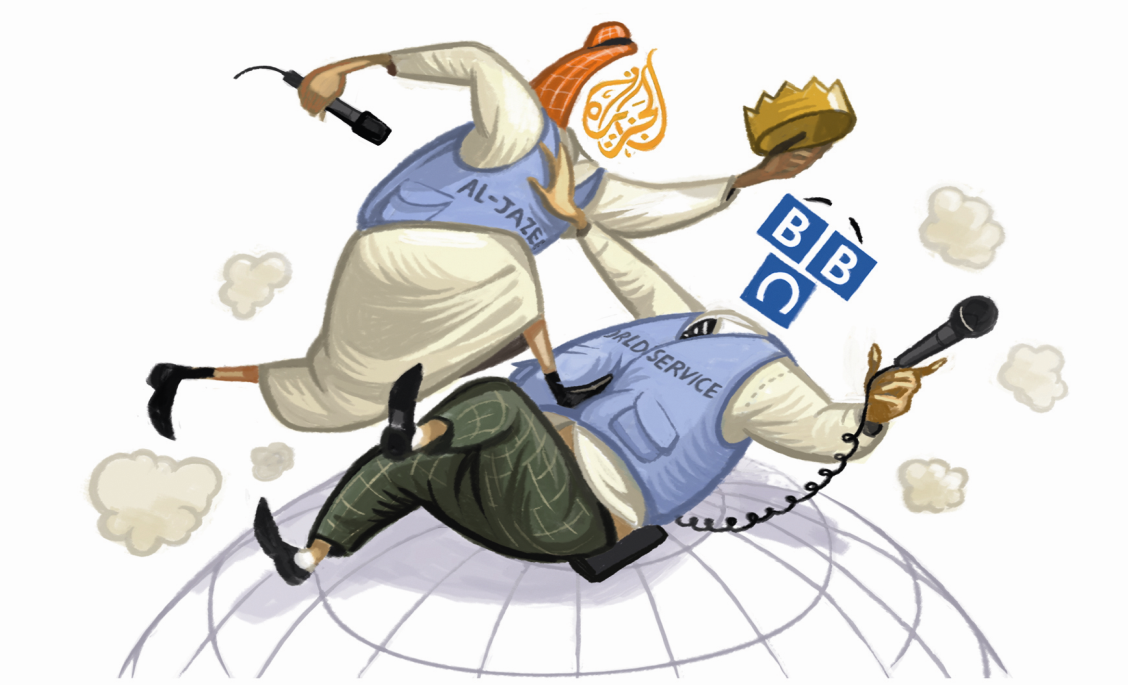
Yesterday’s debate on the future of the World Service was an unqualified success for its convener, Richard Ottaway. His motion received very extensive cross-party support and the MPs involved are confident of victory. As one source put it, “I haven’t met anyone – anyone – who agrees with that cut.” For its part, the government will “reflect carefully on the issue.”
Parliament and Whitehall ring to anxious talk that cuts to the World Service will diminish Britain’s status abroad, and that less impartial state broadcasters, notably al-Jazeera, are capitalising on our withdrawal: al-Jazeera’s dominant coverage of the Arab Spring is a case in point. Ottaway said:
“It is the cuts to the Arabic services that have caused the greatest concern… Across North Africa, only two radio stations are listened to: al-Jazeera and the World Service. I mean no disrespect to al-Jazeera, but in my judgement, the far more independent and therefore respected service is the World Service.”
But, as Dennis Sewell reveals in this week’s issue of the Spectator (subscribers click here, or buy a subscription here from just a £1 an issue), al-Jazeera already reaches far beyond Arabia:
‘Al Jazeera is on a roll. Having recently picked up the Turkish TV channel Cine 5 at auction, it is planning to launch a further Turkish-language news channel. Just as the BBC World Service is closing down its 21-man Serbian radio operation, the Qatari TV network is starting up Al Jazeera Balkans in Sarajevo, where a 150-strong team, headed by the veteran Croatian journalist Goran Milic, will broadcast in Serbo-Croat across all the former Yugoslavia. The Qatari government has invested hundreds of millions of dollars in a state-of-the-art communications satellite, due to launch in 2013, which will offer Al Jazeera the chance to reach more viewers in Africa, the Middle East and deep into Central Asia. The Qatari company Qtel is the majority owner of an Indonesian satellite venture that now provides Al Jazeera’s signal across Southeast Asia. Having secured strong distribution in Europe (the English channel is available in Britain on Sky, Freeview and Freesat), Al Jazeera’s biggest ambition is to break into the US market and reach a mass audience in the most powerful society on earth. It is available only in Washington DC, Ohio and Vermont. Trading on the lift in reputation afforded by its reporting of the Arab revolutions, it has taken out full-page advertisements in newspapers across the United States and is mobilising supporters on social networking sites to press the cable TV companies to offer their subscribers Al Jazeera English.’
This is not in Britain’s interest – or indeed that of Western democracy, for which the dissemination of free information is a vital agent of soft power in the developing world. Sewell concludes:
‘It is not in our interests for large swaths of Africa, Asia and the Middle East to live in permanent ignorance of British values, institutions and culture; never to be given a taste of what living in a free society is like; never to receive impartial and honest news and to be harangued day in, day out by people who despise us and everything we stand for. And that is what leaving the field to Al Jazeera, the Chinese or the Russians would mean. If Hillary Clinton is right about that information war, we should give some serious thought to how to win it.’
P.S.: The cartoon at the top of this post is by Collins. Click here for more Spectator cartoons.






Comments